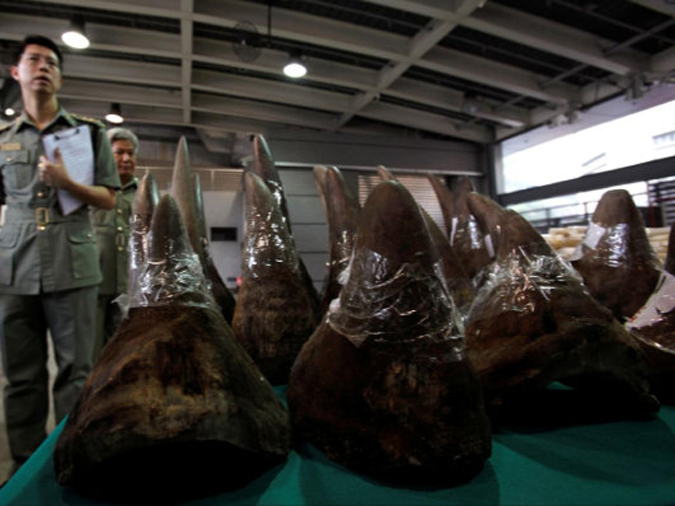
BEIJING (Reuters) – China has postponed the lifting of a ban on the trade of rhino horn and tiger parts for medicine and other uses, the government said on Monday, after a storm of protest from conservation groups over a plan to water down the decades-old prohibition.
In October, the State Council issued a circular replacing a 1993 ban on the trade of tiger bones and rhinoceros horn, opening up exceptions under “special circumstances”, including medical “research”.
Environmental groups said lifting of the ban would be disastrous for endangered rhinoceros and tiger populations, even if the animal parts were only sourced from those bred in captivity.
Rhinos and tigers are already under critical pressure from a black market supplying the traditional medicine trade.
The “detailed regulations for implementation” of the October change had been “postponed after study”, the official Xinhua news agency reported, citing State Council Executive Deputy Secretary-General Ding Xuedong.
Under the October plan, exceptions to the ban could be made for parts from those animals, bred in captivity, being used for medical and scientific research, education and “cultural exchanges”.
“The ‘three strict bans’ will continue to be enforced: strictly ban the import and export of rhinos, tigers and their byproducts; strictly ban the sale, purchase, transport, carrying and mailing of rhinos, tigers and their byproducts; and strictly ban the use of rhino horns and tiger bones in medicine,” Ding said.
China would continue to “organize special crackdown campaigns” with a focus on “addressing the illegal trade of rhinos, tigers and their byproducts”.
“Illegal acts will be dealt with severely,” Ding said.
Conservation groups argue that easing the ban would be devastating for efforts to protect tigers and rhinos because it would confuse consumers and authorities as to which products were legal and which not, and expand markets for them.
Commercial tiger farms are legal in China, and although using tiger bones in medicine was banned, tiger parts from farms often end up in tonics or other medicines, animal rights groups say.
Reporting by Michael Martina
To comment on this story: Login (or sign up) to our app here - it's a troll-free safe place 🙂.![]()






